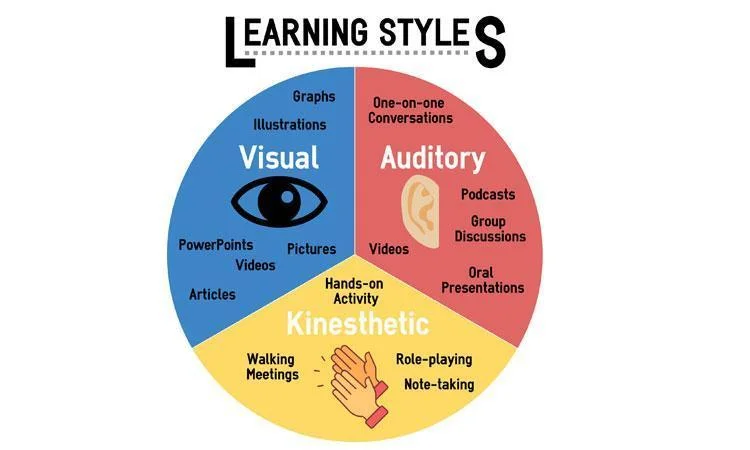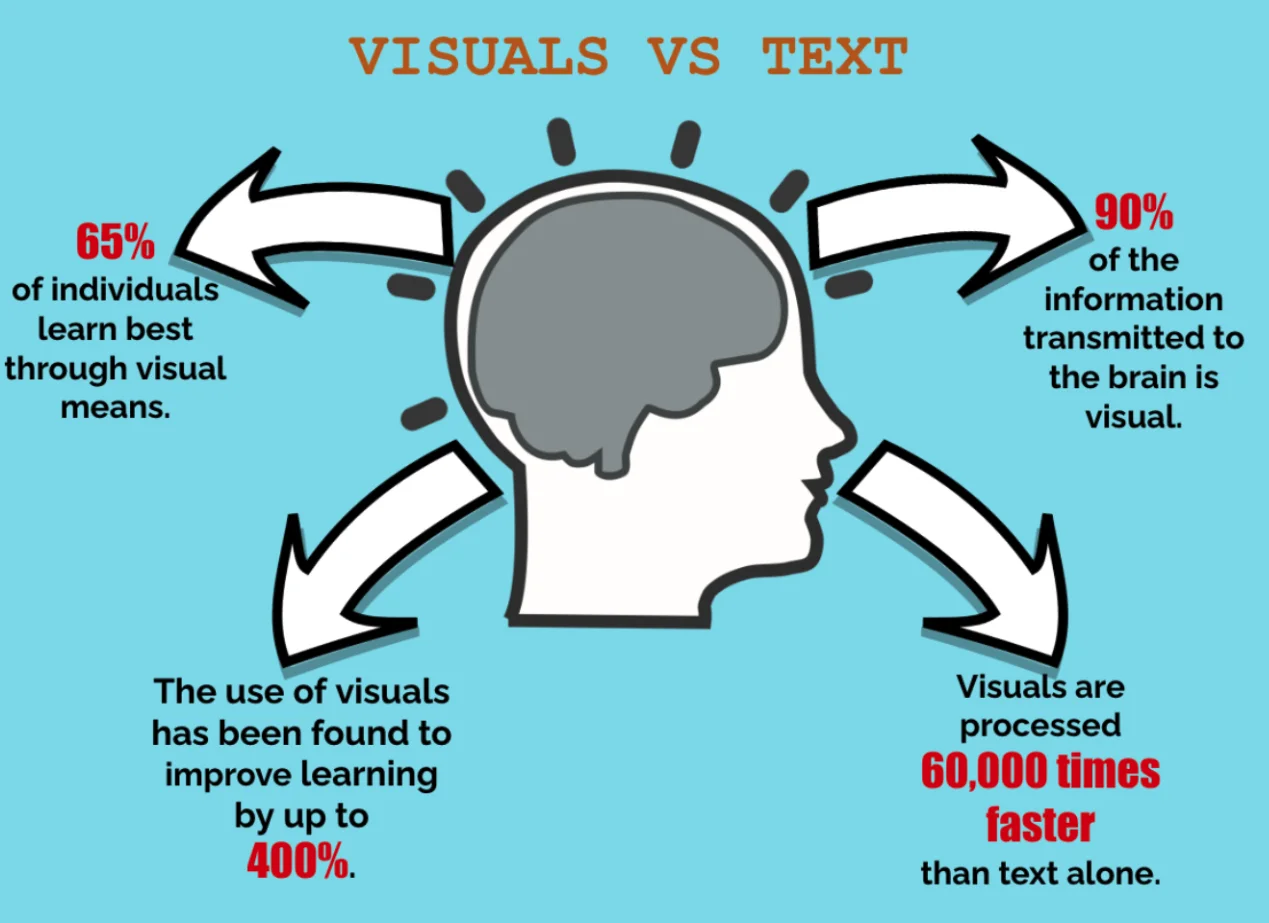
Update: This article was last updated on 20th August 2024 to reflect the accuracy and up-to-date information on the page.
If given a choice between a history lesson or a chemistry lab session, which learning mode would you prefer? Undoubtedly, video representation would be the preferred choice.
This is because humans are more adept at remembering things they have learned through visual means, and this information is retained for a longer period.
With the rapid growth of technology, we have a wide range of visual learning tools such as videos, mind maps, interactive whiteboards, virtual reality, and much more. The best part is that they are interesting and engaging to learners, resulting in a more stimulating learning environment.

According to a report by MarketsandMarkets, the global market size for data visualization tools is expected to grow from $5.9 billion in 2020 to $10.2 billion by 2025. The data shows the numerous advantages of visual learning tools in teaching and learning.
What is visual learning?

Visual learning is a style that involves traditional tools such as videos, images, and graphics as well as technologically advanced tools such as interactive whiteboards, models, simulations, virtual reality, etc., for the communication of ideas and thoughts.
Students learning with this method depend on the different visual presentations for learning and remembering all the information. The fundamental idea of visual learning is that learning is all about seeing.
What is Visual Learner
A visual learner is someone who grasps information best through images, diagrams, and other visual aids. They excel at processing information by seeing it rather than hearing it explained. Think of them as mental picture-makers; they can easily visualize concepts and remember details presented in a visual format.
Benefits of visual learning

Visual information transfer plays a significant role in all education. Students enjoy this mode of learning more than reading or hearing alternatives. If one of the education experts, Randy Martin is to be believed, people tend to use their short-term memory for processing these words.
It means they will not retain a lot of info. Images, on the other hand, reach the long-term memory, where they stay permanently.

Here are some benefits of visual learning
1. Better information retention
One of the studies published on educatincorner.com has indicated that students retain 10 to 20% of written or spoken info. It is found that they retain close to 65% of the visual learner info.
2. Simpler and faster communication
It is easier to process the info that comes listed in bullets than the info coming in paragraphs. This information is easier and faster to process using images and videos. Most of the information that gets transmitted to the brain is of a visual kind. The human brain processes visuals many times quicker than textual info.
3. More motivation
Students struggle with some subjects and find them boring. So, they will lack the motivation to invest in the learning process. In these cases, visuals will be a good alternative to aid the students in overcoming boredom and finding the inspiration to perform better.
4. Well-stimulated emotions
Humans process emotions and visual info in a similar brain area. Visual stimuli and emotional responses have a simple link. They generate memories by working together. Therefore, images and visual metaphors may develop stronger impressions on students. These visuals also mean long-lasting memories.
5. Importance of visual learning
Visual learning is a relatively modern method of learning. This method is changing the way information is imparted by teachers and how students learn.
Even a classroom is a terrific place to learn visually. This is why several teachers are taking up visual teaching methods by using whiteboards, videos, images, presentations, etc.
Using visual learning strategies helps the students achieve and manage their goals. These strategies are also useful for developing skills such as better decision-making, critical thinking, problem-solving, and understanding.
However, these visual learning methods’ positive aspects will hold only when utilized correctly. The relevance and quality of these visuals matter a lot.
For instance, if you include meaningful pictures, videos, and charts that are directly related to the topics will make a significant difference to your tutorial, making it better than your competitors.
However, if you use low-resolution generic images or videos, it defeats the purpose, and the learners will lose interest quickly.
Afterthoughts
Without a doubt, visual learning is an effective method. But, the key here lies in treating the visual learning style like power boosters. If these visuals are irrelevant, they may end up causing distractions from the subject and, in worst-case scenarios, might even put off the audience.
However, if this method is used effectively, it will add value to the lessons and engage many students.
Moonpreneur is on a mission to disrupt traditional education and future-proof the next generation with holistic learning solutions. Its Innovator Program is building tomorrow’s workforce by training students in AI/ML, Robotics, Coding, IoT, and Apps, enabling entrepreneurship through experiential learning.
























